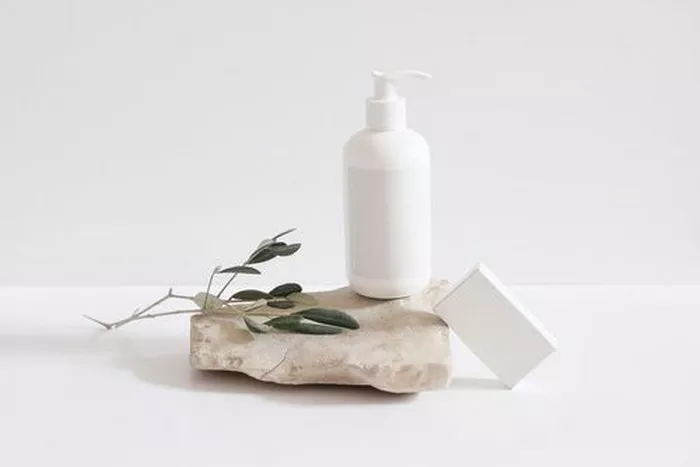Choosing the right shampoo can transform your hair’s health, and herbal shampoos have become a popular choice for those seeking natural, chemical-free solutions. As a professional hair stylist, I’ve tested countless products and seen firsthand how herbal ingredients revive damaged hair, reduce scalp issues, and enhance shine. This guide explores the best herbal shampoos, their ingredients, benefits, and how to pick the perfect one for your hair type. Let’s dive in!
Why Herbal Shampoos?
Herbal shampoos are made with plant-based ingredients like herbs, oils, and extracts. They avoid harsh chemicals such as sulfates, parabens, and synthetic fragrances found in regular shampoos. Here’s why they’re worth trying:
- Gentle Cleansing: Herbal formulas clean without stripping natural oils, keeping your scalp moisturized.
- Fewer Allergies: Natural ingredients reduce irritation for sensitive scalps.
- Nourishment: Herbs like amla, neem, and aloe vera strengthen hair follicles and prevent breakage.
- Eco-Friendly: Biodegradable ingredients are safer for the environment.
- Top 8 Herbal Shampoos (Detailed Review)
Himalaya Herbals Ayurvedic Hair Care Shampoo
Key Ingredients: Neem, Hibiscus, Almond Oil
Benefits:
- Neem fights dandruff and soothes itchy scalps.
- Hibiscus adds shine and prevents split ends.
- Almond Oil moisturizes dry hair.
Best For: Oily scalps and dandruff-prone hair.
Why It’s Great: Affordable, widely available, and leaves hair feeling light.
Khadi Natural Amla & Bhringraj Shampoo
Key Ingredients: Amla, Bhringraj, Shikakai
Benefits:
- Amla (Indian gooseberry) boosts collagen for thicker hair.
- Bhringraj reduces hair fall and promotes growth.
- Shikakai gently cleanses without drying.
Best For: Thin, weak hair needing volume.
Why It’s Great: 100% vegan and preservative-free.
Biotique Bio Kelp Protein Shampoo
Key Ingredients: Kelp, Seaweed, Margosa
Benefits:
- Kelp adds protein to repair damaged strands.
- Margosa (neem) balances scalp pH.
Best For: Chemically treated or heat-damaged hair.
Why It’s Great: Lathers well and smells fresh.
WOW Skin Science Apple Cider Vinegar Shampoo
Key Ingredients: Apple Cider Vinegar, Red Algae, Jojoba Oil
Benefits:
- ACV removes buildup and smoothens cuticles.
- Red Algae protects against pollution.
Best For: Buildup-prone or frizzy hair.
Why It’s Great: Restores shine in just 2–3 uses.
Mamaearth Onion Shampoo
Key Ingredients: Onion Oil, Coconut Milk, Hibiscus
Benefits:
- Onion Oil boosts blood circulation for faster growth.
- Coconut Milk reduces split ends.
Best For: Hair loss or slow-growing hair.
Why It’s Great: Free of sulfates and mineral oils.
Forest Essentials Ayurvedic Hair Cleanser
Key Ingredients: Brahmi, Bhringraj, Sesame Oil
Benefits:
- Brahmi calms inflammation and reduces graying.
- Sesame Oil deeply conditions dry scalps.
Best For: Premature graying or dry, frizzy hair.
Why It’s Great: Luxurious texture with a mild floral scent.
Dabur Vatika Ayurvedic Shampoo
Key Ingredients: Henna, Rosemary, Lemon
Benefits:
- Henna naturally conditions and adds volume.
- Rosemary stimulates hair follicles.
Best For: Curly or coarse hair needing softness.
Why It’s Great: Budget-friendly and effective for tangles.
Organic Harvest Neem & Tulsi Shampoo
Key Ingredients: Neem, Tulsi, Aloe Vera
Benefits:
- Tulsi (holy basil) reduces bacterial infections.
- Aloe Vera hydrates without greasiness.
Best For: Oily scalps or acne around the hairline.
Why It’s Great: Certified organic and cruelty-free.
How to Choose the Best Herbal Shampoo for Your Hair
Match your hair type to the right ingredients:
- Oily Hair: Look for neem, tea tree, or lemon to control excess oil.
- Dry Hair: Choose coconut oil, shea butter, or aloe vera.
- Dandruff: Opt for tea tree, neem, or apple cider vinegar.
- Hair Loss: Bhringraj, onion oil, or rosemary boost growth.
- Color-Treated Hair: Avoid shampoos with citrus or henna, which may fade color.
Pro Tip: Check the ingredient list. Avoid products with “SLS” (sodium lauryl sulfate) or artificial dyes.
How to Use Herbal Shampoo Effectively
- Wet Hair Thoroughly: Use lukewarm water to open cuticles.
- Massage Gently: Focus on the scalp to improve blood flow.
- Rinse Well: Residual shampoo can cause buildup.
- Follow with Conditioner: Herbal shampoos are gentle but may need extra hydration.
- Be Patient: Herbal results take 4–6 weeks—consistency is key!
Common Mistakes to Avoid
- Overwashing: Herbal shampoos are mild; use 2–3 times weekly.
- Skipping Patch Tests: Some herbs (like henna) may cause allergies.
- Mixing Too Many Products: Stick to one shampoo for 6–8 weeks before switching.
Conclusion
Herbal shampoos offer a safe, natural way to achieve healthy hair, but results depend on choosing the right formula. From Himalaya’s dandruff control to Mamaearth’s growth-boosting onion oil, there’s an herbal shampoo for every concern. Start with your hair type, experiment wisely, and enjoy the journey to luscious locks!
Related topics:
5 Best Herbal Essence Shampoos for Hair Loss: A Full Guide
What Is the Best Remedy for Falling Hair?


